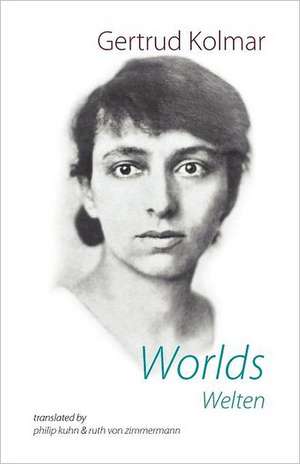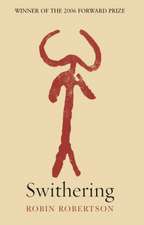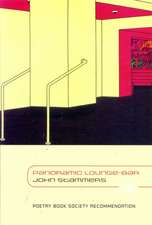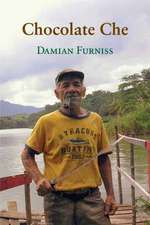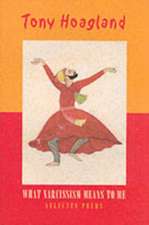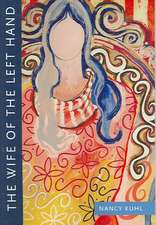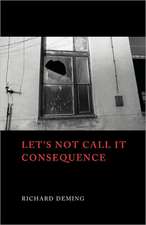Worlds
Autor Gertrud Kolmaren Limba Engleză Paperback – 24 apr 2012
Preț: 97.07 lei
Nou
Puncte Express: 146
Preț estimativ în valută:
18.57€ • 19.44$ • 15.46£
18.57€ • 19.44$ • 15.46£
Carte disponibilă
Livrare economică 10-24 martie
Preluare comenzi: 021 569.72.76
Specificații
ISBN-13: 9781848611986
ISBN-10: 1848611986
Pagini: 96
Dimensiuni: 140 x 216 x 6 mm
Greutate: 0.13 kg
Editura: Shearsman Books
ISBN-10: 1848611986
Pagini: 96
Dimensiuni: 140 x 216 x 6 mm
Greutate: 0.13 kg
Editura: Shearsman Books
Notă biografică
Gertrud Kathe Chodziesner (1894 - 1943), known by the nom-de-plume Gertrud Kolmar, was a German Jewish poet who was born in Berlin and died in Auschwitz. She was a cousin of Walter Benjamin. Gertrud Kolmar came from an assimilated middle-class German Jewish family. Her father, Ludwig Chodziesner, was a criminal defense lawyer. She grew up in Berlin's Charlottenburg district, and was educated in several private schools, the last one being a women's agricultural and home economics college at Elbisbach near Leipzig. While active as a kindergarten teacher, she learnt Russian and completed a course in 1915/1916 for language teachers in Berlin, graduating with a diploma in English and French. At about this time she had a brief affair with an army officer, Karl Jodel, which ended with an abortion, which her parents insisted she have. During the last two years of World War I she was also employed as an interpreter and censor of soldiers' correspondence in a prisoner-of-war camp in Doberitz, near Berlin. In 1917 her first book, simply titled Gedichte (Poems) appeared, under the pseudonym of Gertrud Kolmar, Kolmar being the German name for the town of Chodziez in the former Prussian province of Posen from which her family came. After the war, she worked as a governess for several families in Berlin, and briefly, in 1927, in Hamburg, as a teacher of the handicapped. In that same year she undertook a study trip to France, staying in Paris and Dijon, where she trained to be an interpreter. In 1928, she returned to her family home after her mother's health deteriorated in order to look after the household. Upon her mother's death in March 1930, she worked as her father's secretary. In the late 1920s her poems began to appear in various literary journals and anthologies. Her third volume, Die Frau und die Tiere came out under a Jewish publisher's imprint in August 1938 but was pulped after the Kristallnacht pogrom in November of that year. The Chodziesner family, as a result of the intensification of the persecution of Jews under National Socialism, had to sell its house in the Berlin suburb of Finkenkrug, which, to Kolmar's imagination became her 'lost paradise' (das verlorene Paradies), and was constrained to take over a floor in an apartment block called 'Jews' home' (Judenhaus) in the Berlin suburb of Schoneberg. From July 1941 she was ordered to work in a forced labour corvee in the German armaments industry. Her father was deported in September 1942 to Theresienstadt where he died in February 1943. Gertrud Kolmar was arrested in the course of a factory raid on the 27th of February 1943, and transported on 2 March to the Auschwitz concentration camp. Though the date and circumstances of her death are not known, she was apparently murdered shortly after her arrival.
